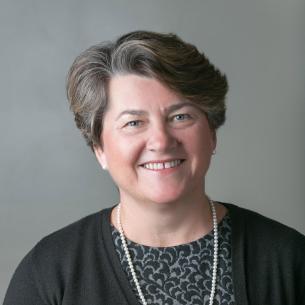Meeting
2023 ASCO Quality Care Symposium

Massachusetts General Hospital, Boston, MA
Therese Marie Mulvey, Eirian Seigal Botti, Courtney Jenkins, Nora Hathaway, Jessica McGuire, Benjamin Meller, Kerry Lynn Reynolds, Mihir Kamdar, Tara Soumerai, Michaela Rowland, David P. Ryan, Ryan W Thompson
Background: Patients with solid tumors readmitted within 30 days (d) have a median overall survival of less than 90d. Decisions regarding goals of care (GOC), engagement with Palliative Care (PC) and further therapy are often deferred to the outpatient team leading to future readmissions. Methods: A pilot virtual continuity visit (VCV) program was developed using a video platform to arrange meetings with outpatient oncologists, inpatient teams, patients, families and PC providers during a hospital readmission within 30d. The intervention occurred on a single solid tumor oncology service at an academic medical center. Patients were included if discharged from the same hospital within 30d and not readmitted from hospice or SNF. Exclusion criteria included admission for scheduled therapy, curative-intent treatment, or acute side effects of new therapy. Orders were placed at the discretion of the inpatient team. Visits were scheduled only on weekdays. A structured discussion tool was used for prognostic awareness, GOC and availability of PC services. Results: From April 1, 2022 through March 31, 2023, 96 unique patients were eligible for VCVs. This represented 6% admissions to this floor. 15 VCV were completed, 23 were scheduled but not completed, 58 were not scheduled. Reason scheduled visits not completed included: in-person family meeting (7 ), physician unavailable (9), transfer off floor (1), conversation deferred to outpatient visit (4), not clinically necessary (2). Reason visits not scheduled: unable to schedule prior to D/C (37), deferred to outpatient (2) hospice D/C (3), not appropriate (5), in person visit (1). Of the 15 patients who completed VCV, 0% were readmitted within 30d, 100% had documented GOC discussion and 100% had PC engaged in the VCV. Of the 7 patients who had in person visits, 3 of 7 were readmitted, 1 of 7 in person visits had a documented GOC discussion. No PC engagement was present for the in-person meetings. 51/58 patients without scheduled VCV were readmitted, 22 within 30d. Conclusions: VCV are feasible via a video platform with the patient, primary oncologist, inpatient team and PC. The structured discussion provided clear documentation of prognostic awareness, GOC and engagement with PC. No patient who completed a VCV was readmitted.
Disclaimer
This material on this page is ©2024 American Society of Clinical Oncology, all rights reserved. Licensing available upon request. For more information, please contact licensing@asco.org
2023 ASCO Quality Care Symposium
Poster Session
Poster Session A
Quality, Safety, and Implementation Science,Cost, Value, and Policy,Patient Experience,Survivorship
Quality Improvement Research and Implementation Science
JCO Oncol Pract 19, 2023 (suppl 11; abstr 421)
10.1200/OP.2023.19.11_suppl.421
421
J3
Abstract Disclosures
2023 ASCO Quality Care Symposium
First Author: Tara L. Kaufmann
2022 ASCO Quality Care Symposium
First Author: Chloe Weidenbaum
2023 ASCO Annual Meeting
First Author: Aneesha Ananthula
2024 ASCO Quality Care Symposium
First Author: Min Woo Hwang